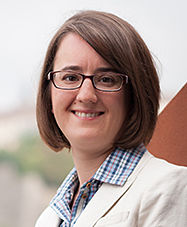242. Therese Cory on Self-Awareness in Albert and Aquinas
Posted on
Therese Cory tells Peter what 13th century philosophers thought about self-awareness.
Themes:
Further Reading
• T. Cory, “Bonaventure’s Christocentric Epistemology: Christ’s Human Knowledge as the Epitome of Illumination in De scientia Christi.” Franciscan Studies 65 (2007): 63–85.
• T. Cory, “Diachronically Unified Consciousness in Augustine and Aquinas,” Vivarium 50 (2012), 354–81.
• T. Cory, Aquinas on Human Self-Knowledge (Cambridge: 2013).
• T. Cory, “What Is an Intellectual ‘Turn’? The Liber de causis, Avicenna, and Aquinas’s Turn to Phantasms,” Tópicos 45 (2013), 129–62.
• T. Cory, “Averroes and Aquinas on the Agent Intellect’s Causation of the Intelligible.” Recherches de théologie et philosophie médiévales 82 (2015), 1-60.







Comments
Connecting the continents.
This was a good episode. But I had only just listened to your recent Indian-philosophy eposiode (http://historyofphilosophy.net/upanisads-self) that is also about how one can and cannot be be aware of the self. It seems that connections are *crying out* to be drawn.
I suppose drawing such connections risks dabbling in philosophy rather than history-of-philosophy. But I think even histories can be understood better in the light of similar-but-not-the-same developments in other times and places.
Therese Cory on Self Awareness
I can see I should have listened more attentively to your podcasts on Medieval Philosophy.
Your interview with Therese Cory was very interesting. I seem to be implicitly aware of myself no matter what I am doing. Some seem to forget themselves during peak experiences but I don't seem to be one of them.
I remember reading that Plotinus recognized different levels of self awareness, and that he seems to have thought that the upper part of the soul was contemplating the Intellect even though WE may not be aware of it.
On the other hand, Plotinus seems to have occasionally had some mystical type experiences where he is simply oned with the One, aware of no distinction. That seems to imply he was not always aware of himself. I hesitate to say that since you are something of an expert on Plotinus; I have read one scholarly article on him by you in The Routledge Handbook of Neoplatonism, ed. Remes, et al.
I remember I used to hear about pre-reflexive consciousness (Sartre) but still, that includes a basic awareness of self. Some other students thought that was of great significance. I remember a BBC In Our Time podcast on Cogito Ergo Sum, where someone brought up that when we reflect on our pre-reflexive knowledge, that changes out thinking and we are reflecting on our past preflexive thinking, but so what? We are still thinking of something and so we still would be implicitly aware that it is our thinking. It was Stephen Mulhall, I think, who brought up prereflexive thinking and he thought this would radically change Descartes I think, therefore I am. (start about 38:15)
https://www.bbc.co.uk/programmes/b010mvcp
I don't see how this would affect Descartes reasoning, myself, because when I reflect on my thinking, I am still thinking and therefore am implicitly aware of myself.
Of course, Descartes conceived Cogito ergo sum as an immediate intuition, not a conclusion to a syllogism (Whatever thinks exists, I think, therefore I exist.)
My first major difficulty with Descartes Meditations is his definition of ideas to include sense experience. Sense experience is particular, sensible, and material, so I don't need to prove there is a material world. That is a digression, but I am looking forward to your podcasts on Descartes, whenever you get around to them.
In reply to Therese Cory on Self Awareness by Pat Daley
Awareness
Yes I'm looking forward to getting to Descartes too! Though tackling such major figures, where there are whole rooms' worth of secondary literature one could read, is always a bit daunting.
Just on Plotinus, your recollection is correct: he was interested in the idea of become aware of what one is experiencing only when one pays deliberate attention to it. He gives the example of letting your eyes run over words without really reading (all too familiar). I'm not sure he would say that a vision of the One involves lack of self-awareness; for sure the individual self becomes somehow unified or subsumed with the One, but it is not clear that that would be an unconscious experience. He actually talks surprisingly very rarely about union with the One though - people tend to assume it must have been an important part of his thought because of later mystical streams within Neoplatonism, but this turns out not to be true, or at least if it was important to him he doesn't have that much to say about it.
Add new comment